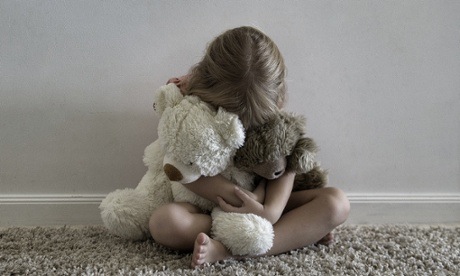
Australian governments spend an average of $9.1bn a year treating the unresolved issues of adult survivors of childhood abuse and trauma, a study from an advocacy group has shown.
The group Adult Survivors of Child Abuse (Asca) has produced modelling suggesting that addressing the residual effects of childhood abuse, trauma and neglect costs billions of dollars.
Asca suggests money might be saved by investing in better targeted services.
The estimated cost for each person in four key areas of concern is:
- Nearly $7,700 in treating mental illness
- Just over $6,000 in treating obesity
- Nearly $5,300 in dealing with suicide or attempted suicide
- Just under $5,000 to treat alcohol abuse
“It’s an enormous number, but when you look at the prevalence of child abuse and trauma … it’s not so startling,” the president of Asca, Cathy Kezelman, said.
She estimates there are 5m Australian adults who are survivors of childhood abuse, trauma and neglect.
“The government needs to invest in the needs of survivors,” Kezelman said. “The right support for survivors has been few and far between.
“There’s been a dearth of appropriate services for a long time.”
Asca has submitted a paper to the federal government on the cost of child abuse, saying that implementing support services for survivors will save money across the board.
“This report is very informative about an important subject and will be considered carefully, but … we have no additional comments to make at this stage,” a spokeswoman for the Department of Health told Guardian Australia.
Asca wants more money put into specialist services such as telephone help lines and abuse counsellors. Kezelman said training frontline workers to identify the effects of childhood abuse was similarly lacking.
A child protection expert and former head of Child Wise, Bernadette McMenamin, wants more resources put into identifying abuse when children are young.
The royal commission into child sexual abuse found it took a survivor of abuse 22 years before they acknowledged what they had gone through, and McMenamin said that needed to change.
She wanted the voices and concerns of children to be heard.
“If you speak to survivors, what you’ll hear is that they never tell, and the reason that they don’t tell is because they don’t think they’ll be believed,” McMenamin said.
“The discourse on child abuse needs to happen in the home, in the community and in schools.”
Both Kezelman and McMenamin welcomed the fact that the royal commission into child abuse had brought the issue out into the open.
